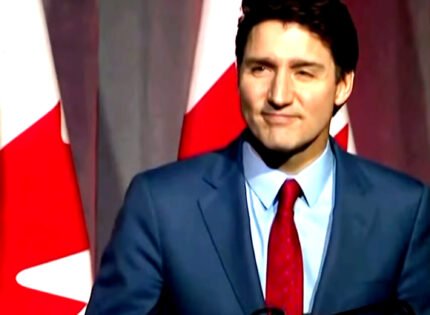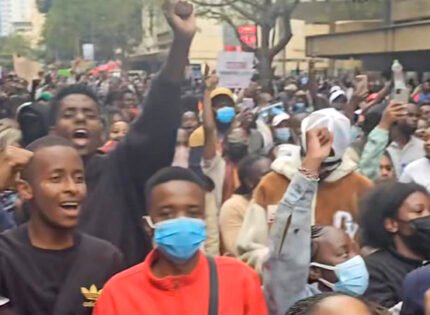South Africa
Statue Honoring Freedom Fighter Unveiled at the United Nations
A statute honoring South Africa’s first Black president and anti-Apartheid activist Nelson Mandela was unveiled on September 25, at the United Nations headquarters in New York.
The 1.8 metre sculpture of Mandela is the first-ever human statue to be housed in the United Nations. The Republic of South Africa donated the statue in commemoration of the 100th year of Mandela’s birth.
“Nelson Mandela embodied the highest values of the United Nations – peace, forgiveness, compassion and human dignity,” UN Secretary General Antonio Guterres said at the unveiling.
The UN has declared 2019-2028 as the Nelson Mandela Decade of Peace. Mandela became a symbol of the anti-Apartheid movement. In 1964 he was sentenced to life in prison for conspiring to overthrow the state.
He gained international popularity while in prison and spent 27 years in prison. Four years after his release in 1990, he won the multi-racial election becoming the republic’s first Black president. He later became a Nobel peace laureate and global statesman.
“Few people in the history of the world have left such an incredible mark on humanity,” UN General Assembly president Maria Fernanda Espinosa Garces said.
Dignitaries and members of Mr. Mandela’s family, including his widow Graca Michel, all gathered to celebrate the event.
Tanzania
Ferry capsizes killing hundreds
A crowd gathered on the shores of Lake Victoria, Tanzania, on Thursday, September 20, and watched as body after body was pulled out of the water after a ferry capsized killing over 200 people according to one report.
“This is a great disaster for our nation,” President John Magufuli said. He announced four days of national mourning. And he ordered the arrest of the operator of the ferry, MV Nyerere. Around 80 people were rescued from the accident. Rescue teams continue to search for others who were on board. Accidents are often reported on the large freshwater lake, which is surrounded by Tanzania, Kenya and Uganda.
The worst accidents have occurred in Tanzania, where passenger boats and ferries tend to be overcrowded and in poor working condition.
In 1996, a ferry disaster on Lake Victoria killed at least 500 people. And in 2011, around 200 people were killed after an overloaded ferry carrying 1,000 people capsized.
Senegal
MaTontine merges tradition and technology to help women access banking services
Groups of women gather on a monthly or bi-weekly basis across various towns and cities in Senegal to consolidate their funds as a group.
The group of approximately 10 people contributes an amount of about $10 to a pot, and at the end of the cycle one of them gets $100. The cycle goes on until each member has $100.
This system is called ‘Tontine’, and it is one of the oldest and ubiquitous social group savings systems in West Africa and Africa at large.
Adding technology to this practice is MaTontine, founded by two Nigerian siblings, Bernie Akporiaye and Tosan Oruwariye, who have decided to blend technology into the system.
“We wanted to be part of the generation of Africans who could help solve some of the challenging problems that exist in Africa,” Akporiaye says.
“We were inspired by the fact that there are a lot of indigenous financial systems in Africa that worked much better than modern banking systems,” he adds. However, he points out that participants of these traditional systems did not benefit accordingly.
“Specifically, we saw Africans behaving financially responsibly within tontine groups and felt that they were not being adequately rewarded for that behaviour. Hence, we created MaTontine. We wanted to update the traditional model of tontines using technology, but without significantly changing the underlying existing rules.”
MaTontine aims to preserve the traditional savings model that is entrenched in the savings tradition of many Senegalese women.
Since its inception, the fintech startup has helped thousands of small-scale business owners in Senegal. It’s ease-of-use and accessibility have helped the platform grow at a faster rate in the country, giving it an edge over other financial solution platforms in Senegal. One of it is allowing market women and its other users to save as low as $10 per month to qualify for small loans at the end of the month.














